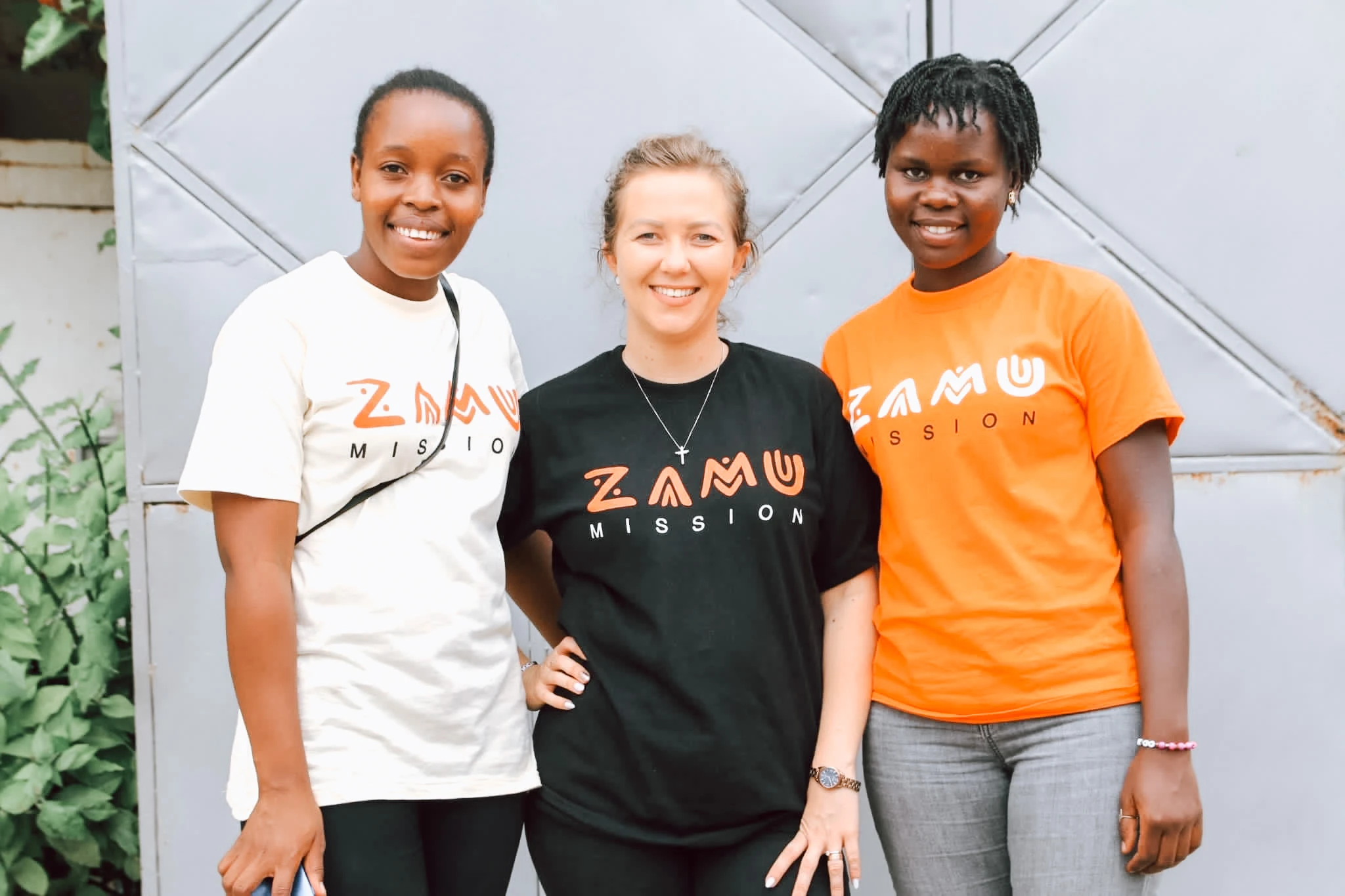Missionary in Kenya Inna Pidgaina: “If you have given your life to Christ, you need to be ready for everything”
8 March 2023
She grew up in a family of devoted Christians in Ukraine, graduated from university with honours, but gave up a career as a programmer. “White”, who identified herself with the African people and has been serving the youth in the Zamu mission for more than 7 years in the epicenter of immorality and vice.
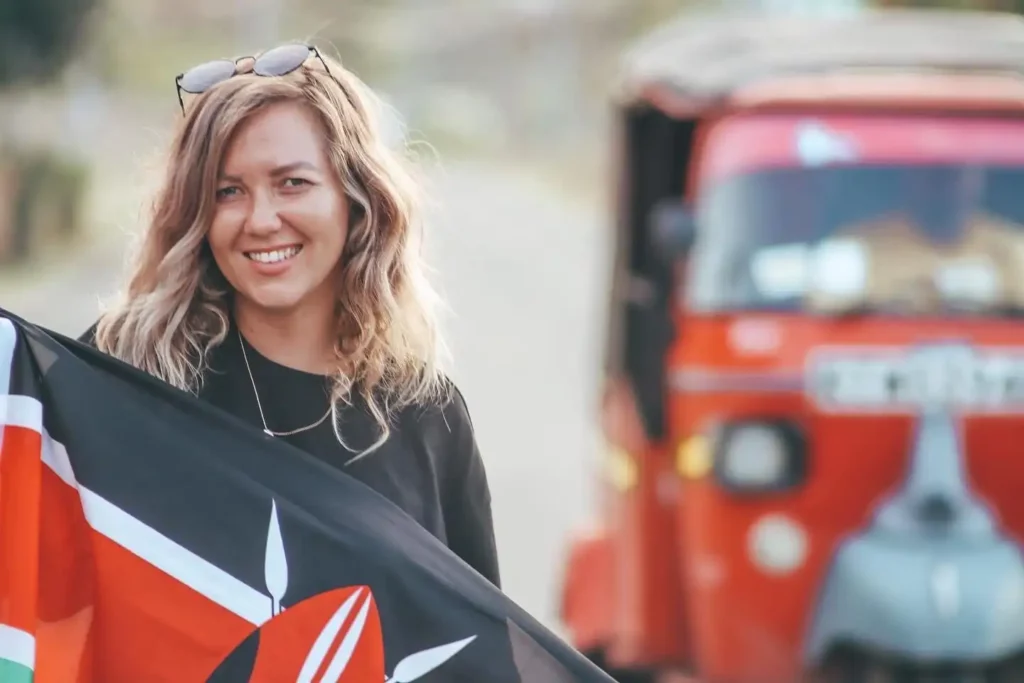
In an interview, a missionary from Mombasa in Kenya, Inna Pidgaina, shares the story of her formation and ministry, talks about the cultural features of the country, her adaptation to radically new realities and the people with whom she shares her daily life.
Inna, could you share your story? How did you become a minister?
I was born and grew up in Mykolaiv, in a Christian family. I consider it a privilege to be born in a family where parents follow Jesus. My entire childhood was spent in church and Bible study groups, in children’s and youth ministry. I didn’t have such Christianity – “You have to go to church on Sunday, because you have to.”
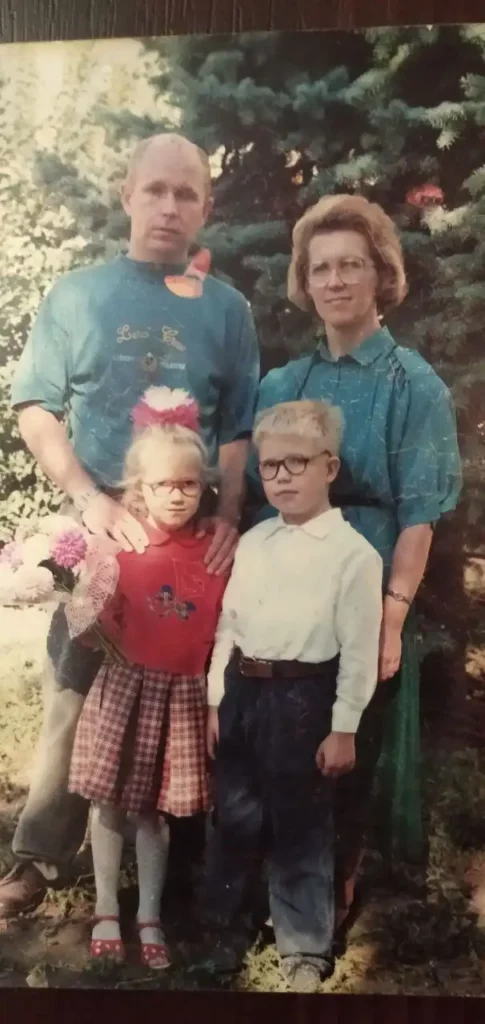
I saw the life of my parents that Christianity is 24/7. It’s always people at home, it’s work, but I liked it because everything was real. And now, 25 years later, I see that what I do in ministry is very much a reflection of what my parents did back then. They always taught that it is not enough to go to church, but to have a personal relationship with God.
I sincerely repented at the age of 7. Then God baptized me with the Holy Spirit. I liked how my dad told us that God communicates with us through other languages. And then, at my childish level, I told God that I wanted to be friends with Him like that.
I spent all my free time in churches and camps. For me, Christianity was never boring, but something extreme and fun. At the age of 18, I received water baptism. The turning point happened to me when I received the revelation that it is possible to be saved and it is possible to be a disciple of Jesus Christ. This is a different level of relationship with God. When your life is dedicated to Christ, then love with Christ is on another level. God was asking me if it was enough for me to be saved and go to heaven, or if I wanted to be His disciple? It’s like in Acts. I took some time to think.
Inside I felt like: God is calling me – let’s go! And I don’t know where, what it will lead to… I reread Acts again, and all the stories I read in Sunday school became real for me.
And if my hand is cut off for You? Or if my head is cut off? What if I never get married? I asked God. But if a person has given his life to Christ, he must be ready for everything.
Then I had one of the biggest revelations of my life about how much God loves me!
Reading biographies of missionaries, I understood that if God loves me and I love Him, then even if He has predicted that I will go through some difficulties, I will do it for the sake of love for Him, He will give me the strength to overcome. The best and safest place to be is His will. A week later, I told God that I would like to know this love. From that time I began to ask Him about my calling. Yes, I served in the church, but in the Bible I saw that there was more.
One day, browsing the Internet in search of material for children’s ministry, for some reason I really wanted to read about Kenya. And then God told me that I would be there.
Since then, wherever I went, I saw long-term missionaries everywhere, and it seemed to me that I was not the only one going on a mission.
I almost finished university, but my heart was already in the mission, in understanding God’s will. The scariest thing for me then was telling my parents that I didn’t want to be a programmer, but to go to Africa.
Didn’t your parents assume that you, as a child of zealous Christians, would want to become a missionary?
I think they could guess and were afraid, worried a lot about me. We knew about Africa mostly from the kids’ fairy-tale. Yes, I knew there were children suffering and they needed help.
I began to have dreams about African children running towards me. I understood that either I would go crazy or I would obey the Lord.
He was calling me, and I was afraid, although I was rather not afraid, but simply God’s time was approaching gradually.
I was afraid that my parents might not understand me, but I didn’t want to go anywhere without their blessing.
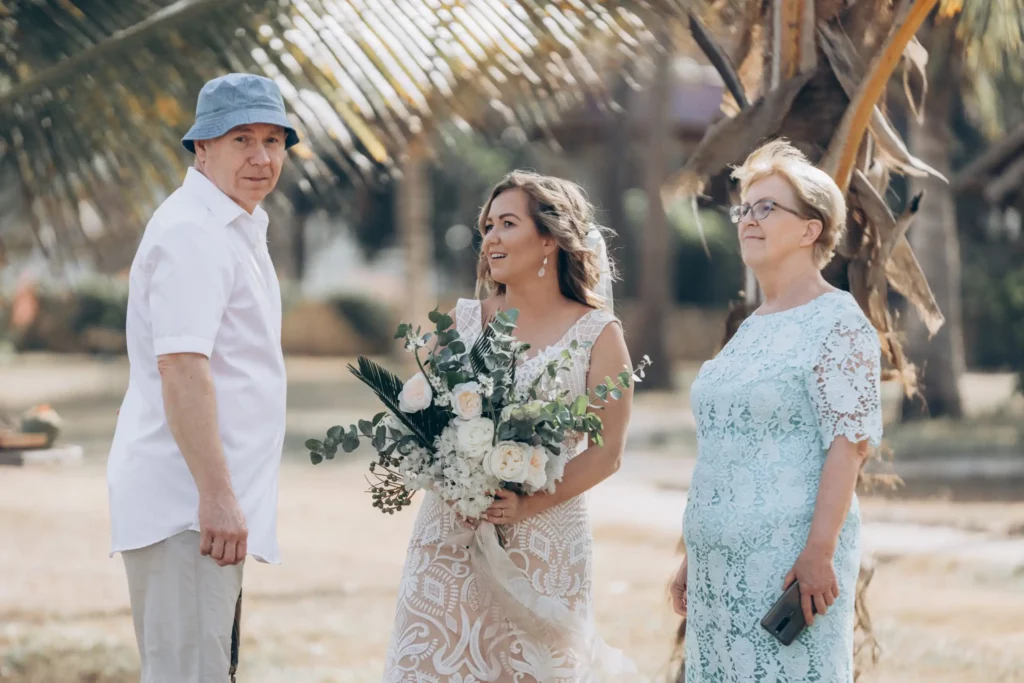
After talking with my parents, my father told me that if I am sure that it is God, then it is a great honor and a great responsibility and he and my mother cannot stand in this way. But he asked God to reveal the same to them. We prayed together. And my dad, like Gideon, set conditions for God.
In my opinion, what my dad asked for was unrealistic, but in two days he received confirmation of everything he asked for.
I didn’t need signs, but my dad had a lot of questions: where will you live? Where will you sleep and what will you eat? Where will you get the money for the ticket?
Then the war in Ukraine started in 2014, and everyone told me that it was a bad idea and that I would not go anywhere. I thought that if my father didn’t let me go to Africa, I would go to the east of Ukraine.
There was another moment before my departure. My dad came to me at home, said that I brought my mother to tears – my mother usually never cries, but here she burst into tears, knowing that I will not come home again.
Three days after the conversation with my parents, I had a plane ticket in my hand.
You arrived at the destination, got off the plane… What were your feelings then?
It seems to me that when I turned on the economy mode, “froze” my emotions. I went for a year, it was not a short-term trip. But inside I knew that I would not return home. It was a one-way ticket.
I understood that my task was to learn to live in a new reality.
How long did it take you to adapt to the new culture?
This happened in several stages. At first, I joined the team of Ukrainian missionaries. As Ukrainians, we tried to preserve our microcosm. This has its pros and cons: you could come to your house and eat borscht, but it inhibited my awareness of what was happening to me. Even before my arrival, I had seen, studied and thought a lot about Kenya, so the nature and landscapes I saw did not surprise me anymore. But I was absorbing the depth of human problems in Kenya during the year.
The story I encountered. A mother with a wound on her head and a bitten back – her husband stabbed and bit her – cooking food for her children, while she was holding one baby on her back… and that’s normal. She had no money to go to the hospital.
If you don’t think about life in Kenya, you can ask yourself: why can’t people in African countries live differently? People who are born here do not know any other life, do not understand how to live differently. Economic, political, cultural factors also have a great influence. In addition, it is worth noting that at that time we served people in the slums – and this is a special mentality within the culture itself.
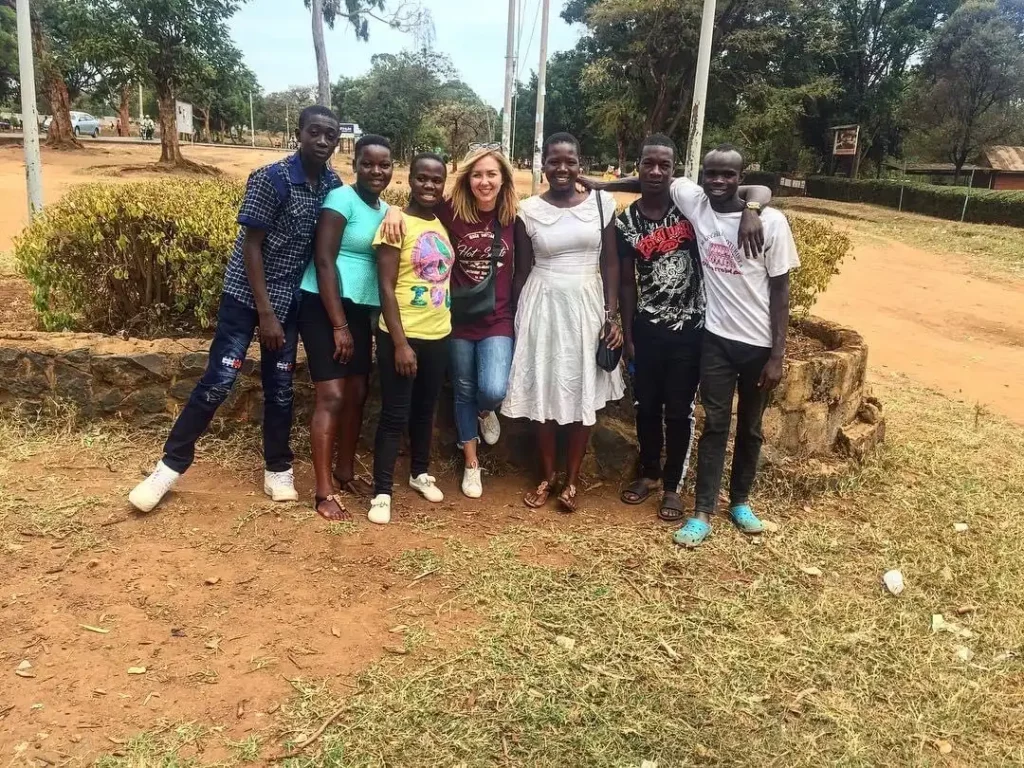
When you spend time with local people in such a routine, it is a completely different level of love and dedication, compassion for them. When this tourist “you need to take a picture of everyone” is put aside, you understand that these people are not monkeys, but individuals with whom you need to build bridges, understand them, try as much as possible to “get into their shoes”.
I went through the second stage of adaptation when I moved from the Ukrainian missionaries to the city of Mombasa. Then God called me to open the ZAMU mission. It was a completely different level, because then I found myself alone among the local population.
I had to adapt to their laws. When I was still trying to remain “white” and solve problems in a “white” way, I was not understood. I had to give in when I realized that I have been here for years and I need to respect their traditions and culture, whether I understand them or not, whether they are logical in my eyes or not, but it is necessary to “swallow” everything, to come to terms with it.
Please tell about peculiarities of life in Kenya
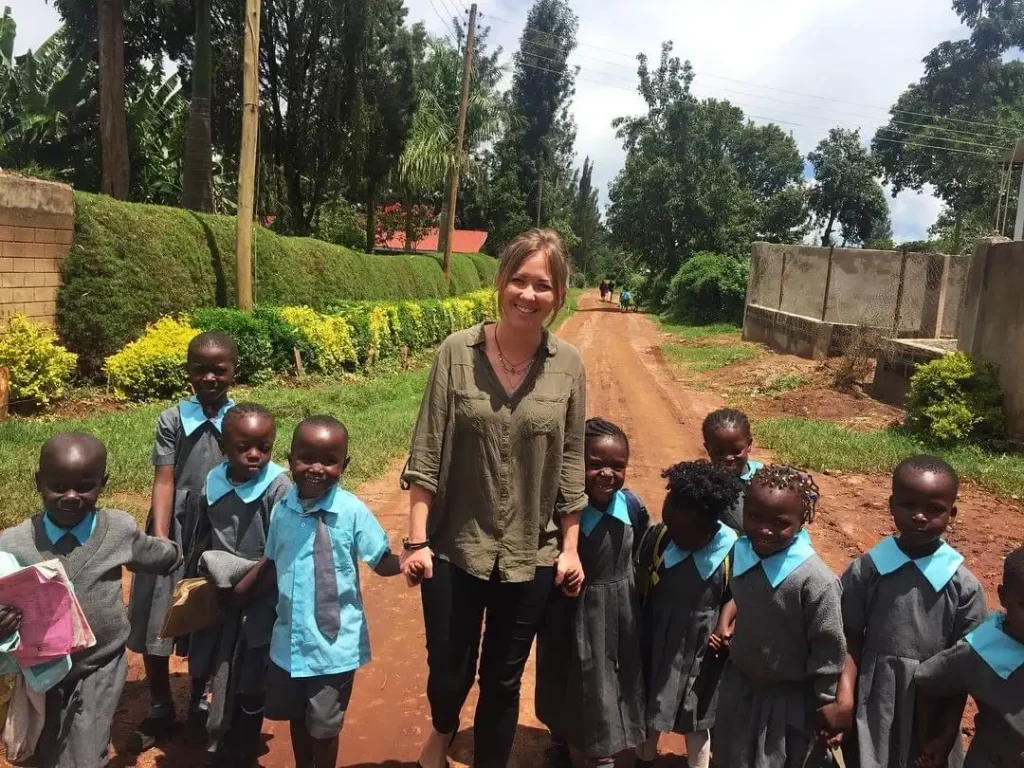
When I arrived, I was immediately put in charge of the junior school and I had to quickly immerse myself in education. Education was a big culture shock for me. All education in Kenya is paid, free education does not exist. It is expensive, but at the same time they do not teach anything. Children come to school at 6 a.m. and leave school at 6 p.m., spend 12 hours at school, pay money for it and know nothing.
In one of the local science books there was a picture: why do people have different body parts?
And it is signed: the hand is to do housework, the legs are to walk, and the head is to carry firewood. From childhood, Kenyans know that their heads are for firewood…
The institution of the family in Kenya is destroyed: raping one’s own children is normal, getting pregnant at 14 is normal, most people, even Christians, live together without getting married and this is normal. In Kenya, people have no rights, no laws, the police can arrest and beat a person just like that.
Of course, I want to clarify again, we are not talking about the whole nation, all people are different. But as phenomena, trends, these things take place.
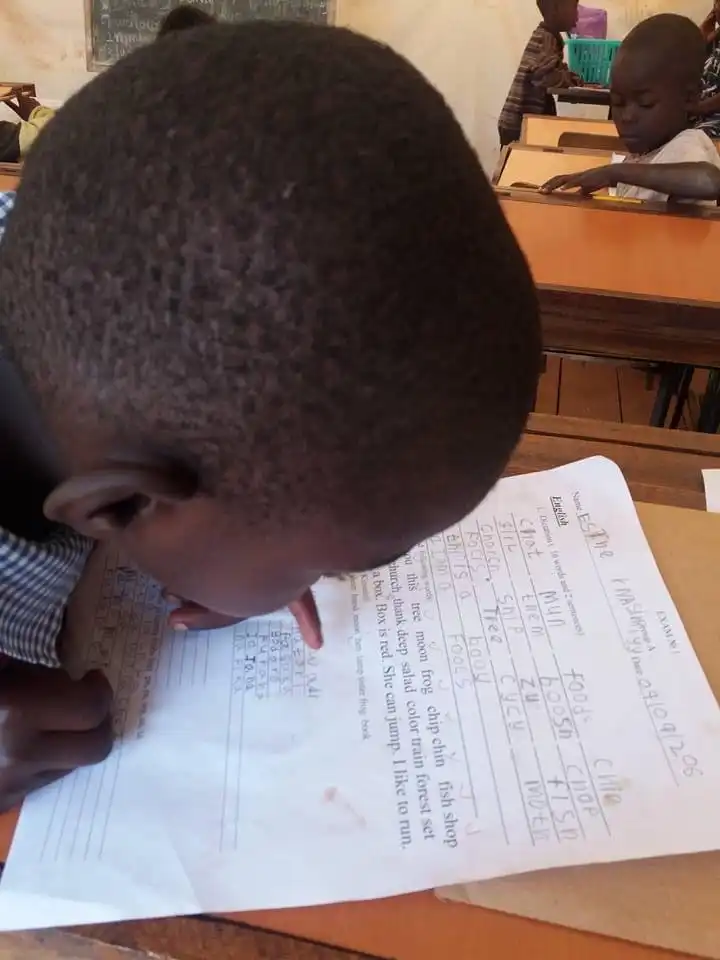
The biggest difference in the thinking of Ukrainians and Kenyans is that Ukrainians are taught from childhood about independence and human rights, while Kenyans are taught not to come forward and not to show their dissatisfaction in order to stay alive.
Schools do not aim to raise a thinking but obedient generation: not to ask questions, but to mindlessly obey. A nation that tolerates injustice because it is taught from childhood.
Children are beaten in schools. For example, if a teacher is in a bad mood, he can hit a child. He can beat a child on the back until it bleeds.
When children started coming home from school with their backs beaten, it was a culture shock for me.
The teacher beat one boy’s hands for wrongly solving math examples, one of them was dislocated.
In Kenya, people do a lot of witchcraft, black magic, conspiracies to make people crazy. There are real cases of how this works.
From your posts on Instagram, I understood that Mombasa is a modern Sodom and Gomorrah. What is life like there, especially for the young people and teenagers you serve?
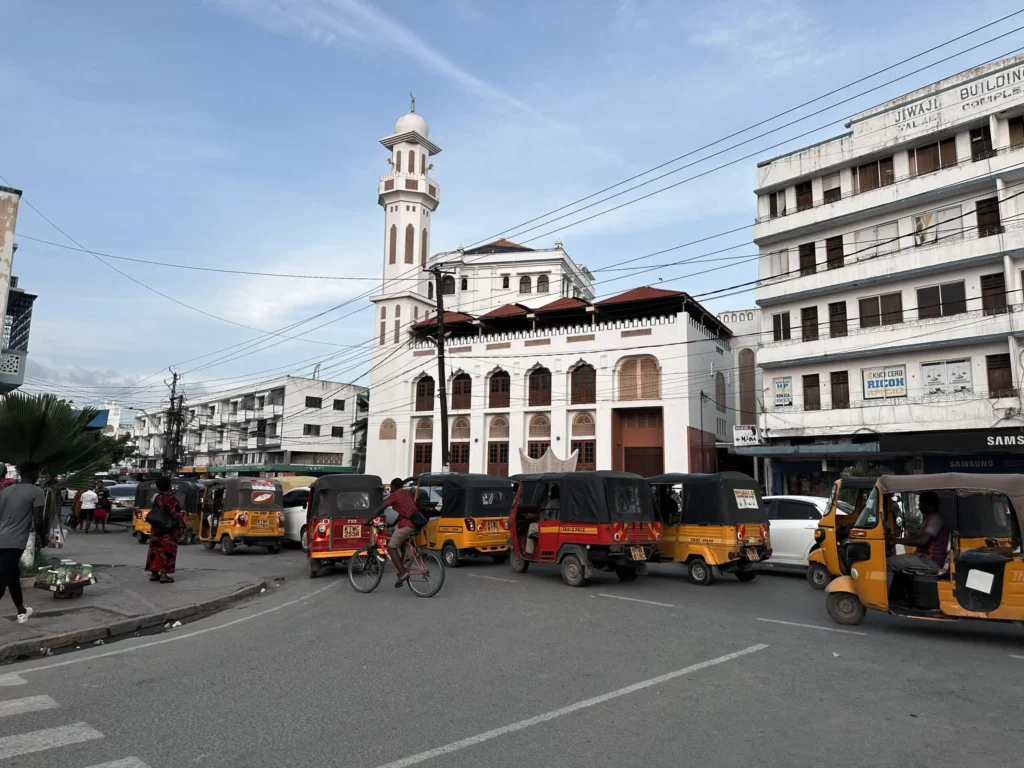
Of course, we serve both children and teenagers, but our audience is young people 18+. What does their day look like? It is even difficult to say, because most of them sit at home because there is no work, they wander the streets. The only free entertainment in Mombasa (population is about 3 million people) is the beach. They sat at home, sat on the beach. Many bars around, very cheap myrrh (chewing drug), it is chewed by everyone from 12-15 years old.
Poor people live here. That the whole city is shiny and attractive is a misleading impression. Here people know how to pretend, they will always find money for entertainment, they show themselves to be what they are not.
Mombasa has a strong culture of pornography and prostitution. For example, a bus. Already on the outside, it is painted in undressed images of girls. One minibus can be called “desire”, another – “satisfaction”. Clips are playing in the salon… To say that these are obscene clips is an understatement. But it’s normal for them. Europeans often come to Mombasa for “this” and take local girls for pennies.
The word “sponsor” is considered bad in the city. A local sponsor is an older man or woman, usually “white” – you have to sleep with and who will pay for your living. Young people in Mombasa believe that the future will be made if you have a sponsor. And that’s normal.
I know that our girls who come to our mission have mothers who work as prostitutes. The girls are 16-17 years old, and the mothers are a little over 30 years old.
How do you live with it?
I’m not used to it, all this bothers me, it’s actually very difficult for me.
You can’t get used to debauchery, I get mentally tired, sometimes I come home broke from church service. We analyzed it with my husband and the team and we have to admit that, first of all, this is a very strong spiritual pressure. You don’t do anything like that yourself, but you feel as if you were lying in a dirty puddle. Our team members are going through the same thing. Communication in a team, joint prayers and conversations with a husband help. He is a wise man and grew up in this city, and always encourages us to look forward with faith, knowing that God always fulfills what He has promised.
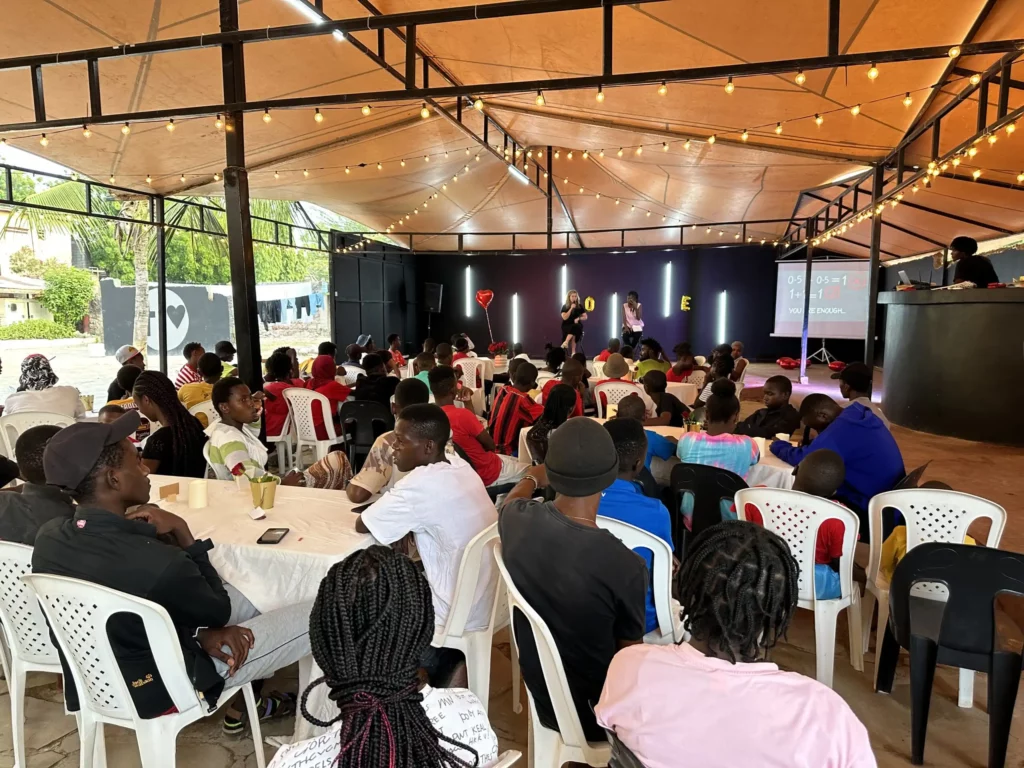
It is difficult to find young people who understand that they need education. For example, one Saturday we celebrated Valentine’s Day. We use this occasion to invite young people to a meeting.
The whole hall was packed. But only a few showed up for educational projects.
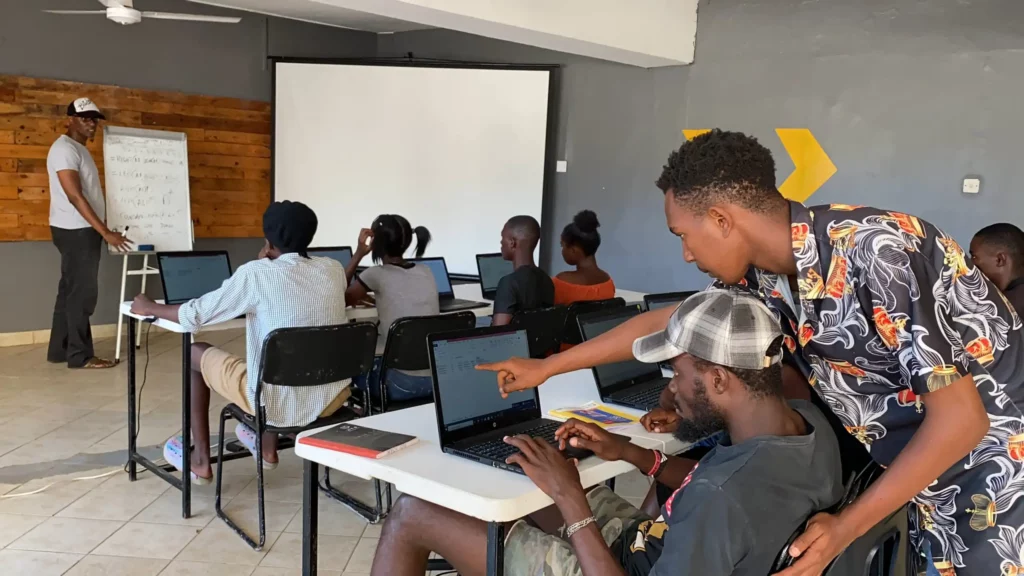
In the programming classes that we do for young people and after which you can get a job, we find that it is not so easy to find people who are able to study diligently for a year, although many are unemployed!
I understand that if young people do not use the opportunities provided by our mission, this does not mean that the ministry has not been successful or that we have not pleased the Lord. For example, in the case when a teenage girl who attended our project becomes pregnant, or a boy has been playing in our football team for 2 years, but has not yet given his life to Christ.
In the end, everyone makes their own choice. For many people, Jesus himself became a healer and savior, but for some, He became a stumbling block. We talk about all the possibilities, explain the consequences of the choice, convey the idea: “I am here for you to help you.” But if a person refuses or does not take it seriously, it is their choice. It may take 10-20 years to change the mindset, it is not easy. This approach freed me from the image of Superman – “everyone must be saved.”
On the contrary, I understand that we are only instruments in God’s hands and we sow, and only He grows.
Zamu. Your mission in Kenya is 3 years old. Tell us about the mission’s vision and goals which were achieved during this time.
When I came to Mombasa, God showed me that I should work with the youth. And the direction of work is to raise disciples of Jesus Christ so that they can become independent missionaries. To raise a generation of missionaries so that they do not need us.
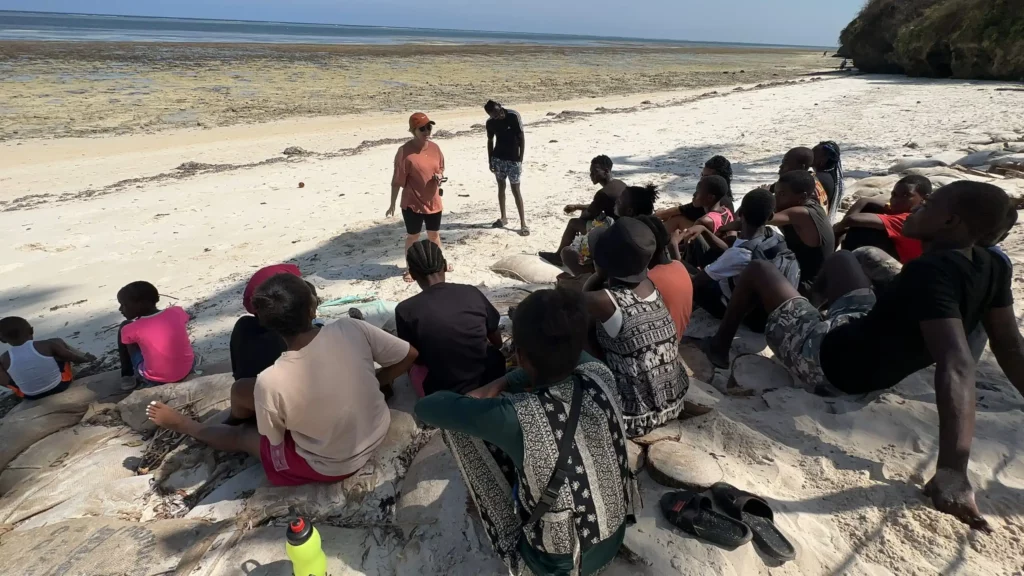
Along with this, we understood that we would have to start from scratch, and therefore, when we talked about the vision of ZAMU, we divided the mission projects into three blocks: evangelization, discipleship, and training for ministers. The task is to set up the ministry so that people who hear about Christ for the first time can come to us, and those who become His disciples and want to devote their lives to service can have training.
What young people like and what their needs are – this is what we focused on when creating projects. We took into account the problems in Mombasa: prostitution, drug addiction, debauchery. Based on this, we are developing an evangelistic direction: football team, computer classes, make-up courses – evangelization plus job creation.
Discipleship is done through home churches and mentoring, and missionary training is done through a missionary school. We are also planning to open local churches in places where it will be needed. Our vision is a missionary movement. Therefore, with God’s help, we started a missionary center in Tana River (administrative district in Kenya – ed.).
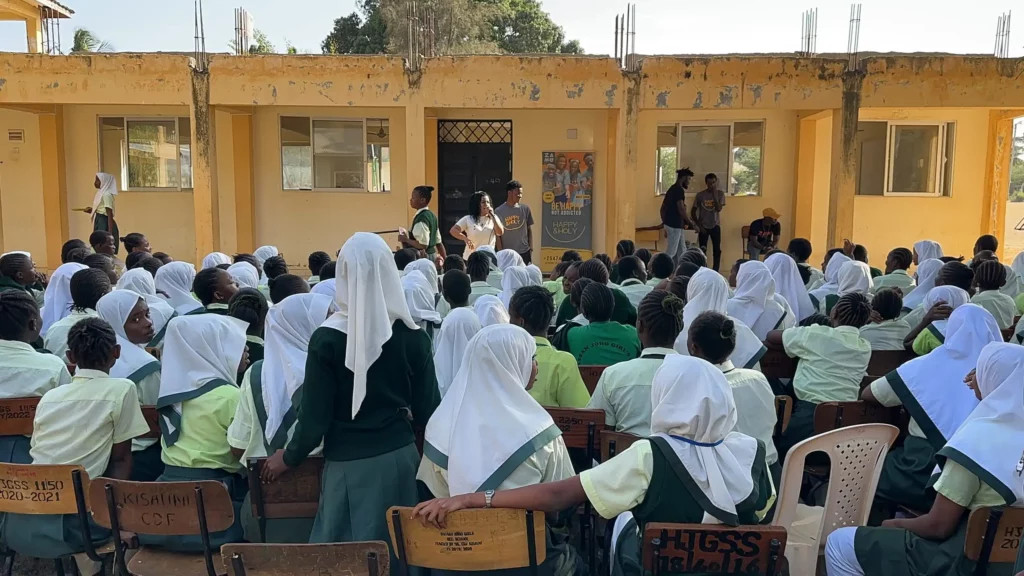
This is how the “Happy&Holy” program was created – evangelization in schools. We have seen that many problems start from school, for example, girls get pregnant in their teens, many become drug addicts from school. Lessons about the truth about drug addiction, pregnancy, about everything that allows us to bring the Gospel not only to those who call themselves Christians, but also to Muslims. We are not allowed to visit Muslims in the church, but we are allowed to go to schools.
The idea is this, we created a program for one trimester, we come to school with a topic once a week. The main idea is that you don’t have to sin to be happy. We say that if you find Jesus, you don’t need all this.
In schools, we are given classes of students of different ages. We can reach from 150 to 500 students at a time. We have two hours to deliver the topic. We talk about why it is harmful to use drugs, we use passages from the Scriptures. We have a lesson where we share the Gospel, it’s risky, and if they find out, we can be banned from school.
After the end of the course, we invite young people to our camp for the holidays, where we already fully preach the Gospel.
After the “Happy&Holy” program and the camp, young people are involved in mission life: Bible study groups, youth ministries.
Last month four people were baptized from those we met at school.
If we consider repentance as raising hands, then all or most of those who go through the program repent. We do not focus on raising hands as a sign of being born again, because young people can do it emotionally. Many pray the prayer of repentance.
There are also people who seriously devoted their lives to Christ. Some of them become members of the home church, join the team of ministers, and there are those who go to study at colleges and universities, and we believe that they continue to talk about Jesus.
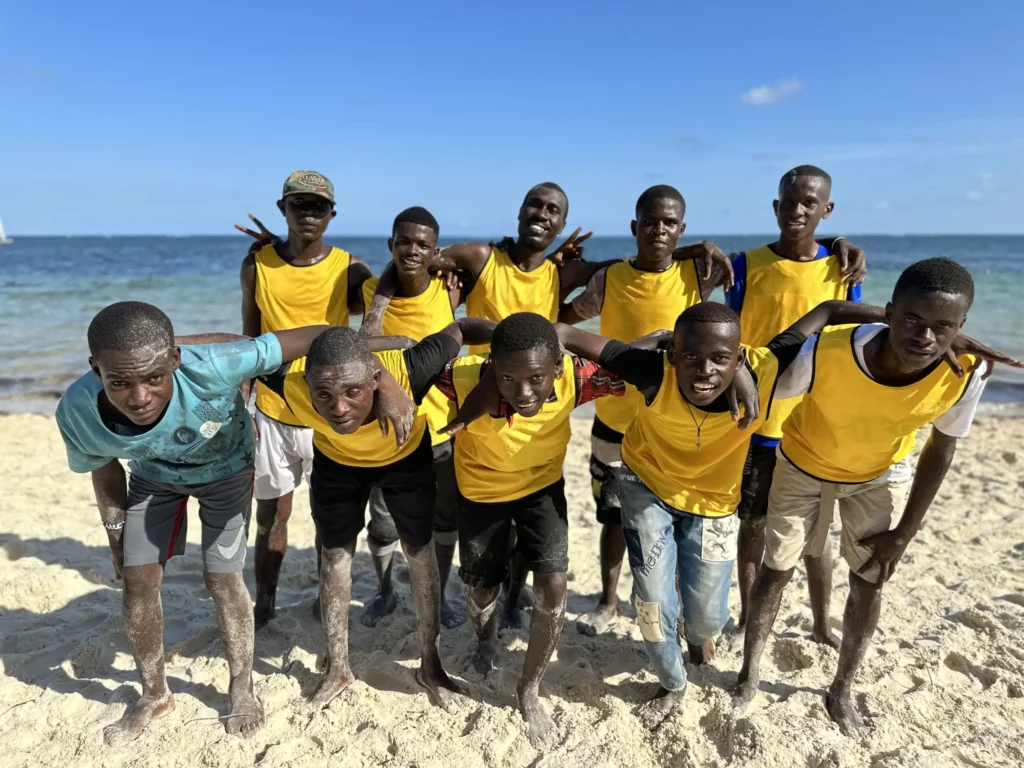
In addition to “Happy&Holy”, we also have a football team. In Mombasa, young people are very fond of playing football. We started our mission by going to the beach to play football with boys and inviting them to the Bible study group. We have guys who have repented through football, were baptized and are serving the Lord. Some stayed with us, while others moved to another city and joined other churches or missions.
Every Sunday we have an outreach event on the beach, coming there with balls. We play, but the main goal is to invite young people to youth clubs and Bible study groups.
During the football game, part of the team walks along the beach and shares the Gospel with people.
Your team teaches computer courses with a certificate with further employment. How do you manage to do it?
Regarding “we give work”, I would like to clarify. We have two computer classes. The first is for those who are just learning to turn on the computer. At the courses, we provide basic knowledge in 1.5 months. We don’t offer jobs afterwards, but students have the opportunity to take programming classes or submit their resumes for jobs that require computer skills, such as supermarket cashiers. Many of our students worked during an election campaign and created databases.
The IT teacher is a good friend of our mission. After the end of the first training program, he will be responsible for our IT office. It turns out that training can be transformed in an IT company. The idea is to train young people in those areas of business that are not yet developed in this country, thus creating jobs and helping the development of the entire city.

The first make-up classes were quite successful. After their completion, two girls already started their own businesses. The goal for this year is to open a salon where girls could get a job.
You say that Zamu is not only a mission, but also a family. Could you tell us how the Zamu family lives on a weekday?
The day begins with a morning prayer from 8.30 to 9.00, then everyone goes to perform their tasks. If the missionary school is in progress, the schedule changes during the day.
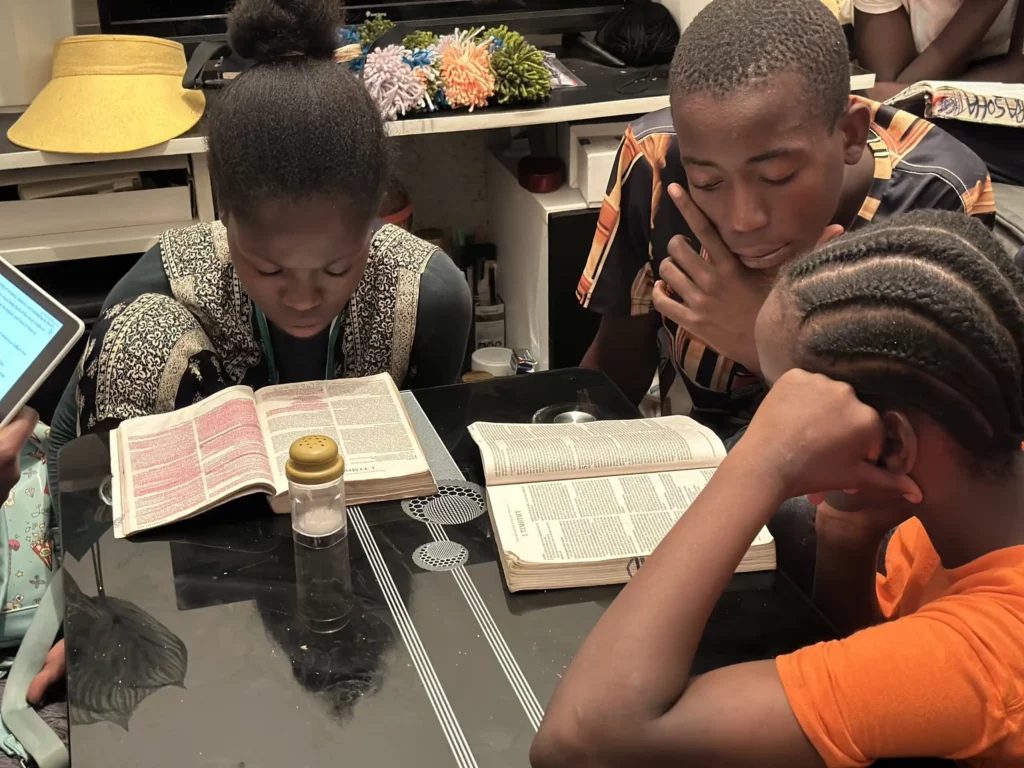
Teamwork begins with prayer. Study, lunch, dance classes, training, clubs, visits to sick and needy people. A lot of time is spent on visits and building relationships: the problems we solve are from “nothing to eat” to “nothing to pay for school”. “The whole family was kicked out of the house for non-payment in the middle of the night.” We often encounter such everyday problems.
We spend a lot of time on soul care and counseling.
We have an end of the working day, but it does not exist in essence, because in the middle of the evening people come to us for help, for example, girls who live with men ask for help, because their men do not provide for them. A few weeks ago, the guy cut his veins…that’s the life we have.
As a family, we are going through all this together. Our ministry team consists of young people who were interns at our mission school, now serving in missions, that is, youth serving youth. These are the ones who came to us from the beginning and grew into leaders of Bible study groups. At the same time, they are still studying in colleges themselves, trying to organize some kind of business in order to serve more and at the same time give back.
It is OK when 20 guys come to visit our ministers and eat all the food prepared for the week.
For us, to serve a neighbor is not only at the level of projects, but it is a way of life. And also, we are always noisy and have fun.
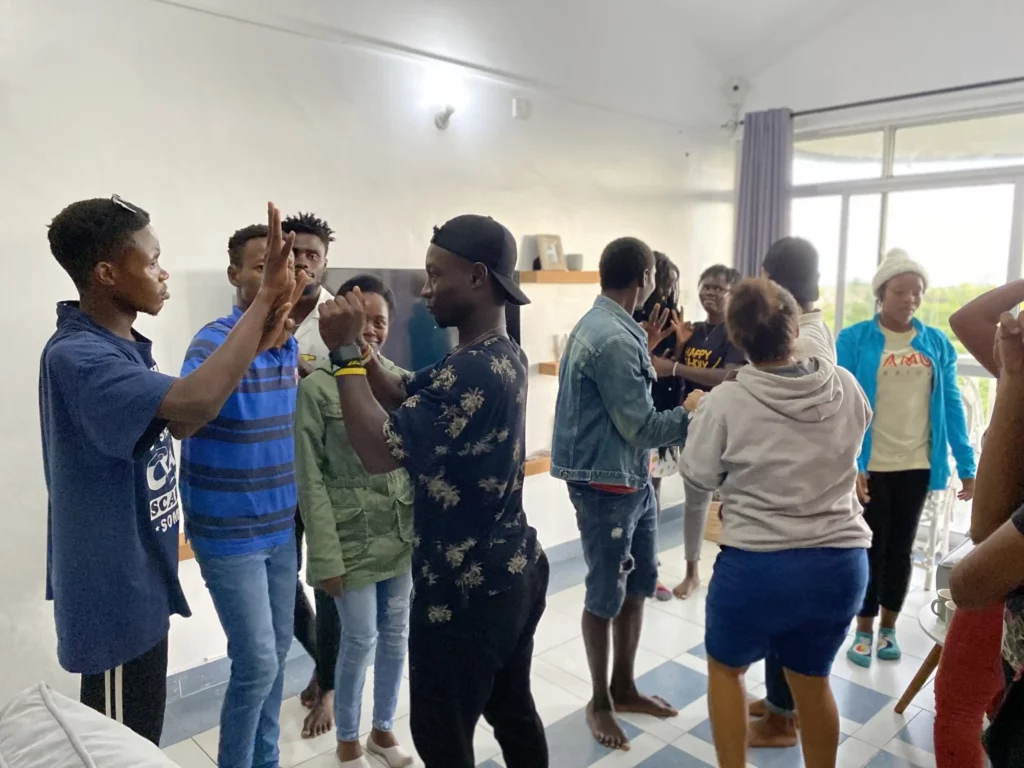
Often young people come to us with questions: “I have a boyfriend/girlfriend, tell me: is he the right person or not?” From God or not, and do we have the same goals or not?
We’ve only been married for a year, so sometimes it feels like we don’t have enough experience. But they have nowhere else to go.
We always have some bread and cookies at home for guests. We do not worry if the house is dirty, because we simply do not have time due to such a flow of people. On a day off, this is the only opportunity to relax, but if we go outside Mombasa.
Where do you invest your free time?
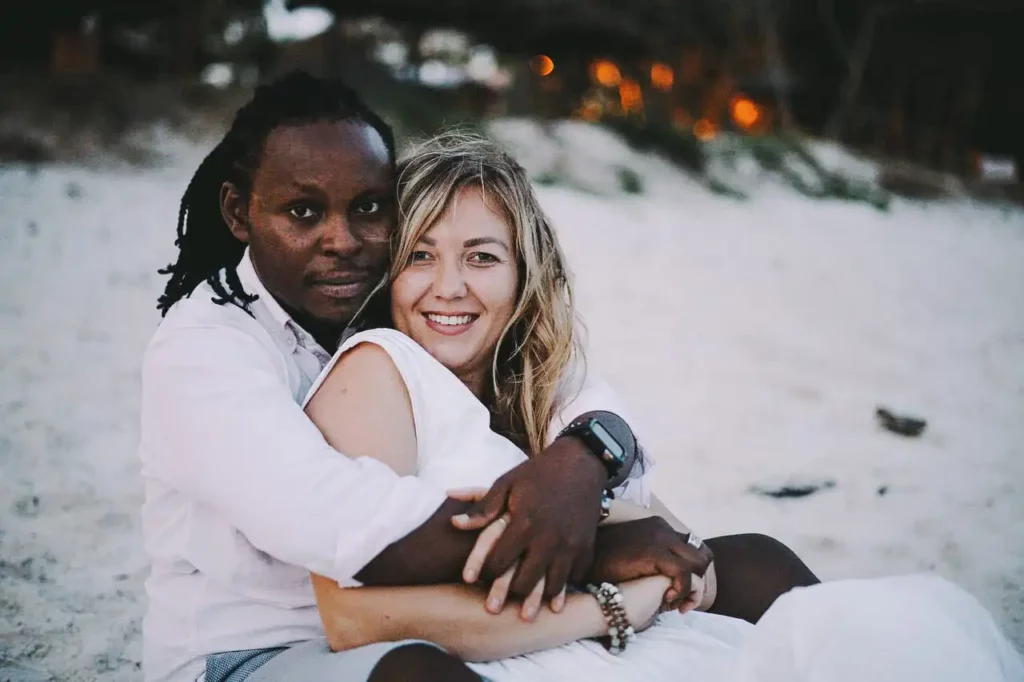
Carmen and I are trying to arrange weekends for ourselves, we started fighting for our family in this regard. What do we do in our free time? We sleep (laughs). We often go out of town on weekends to the coast. We live and serve on the coast, but everyone here knows us. So you just have to go out of town.
I do rowing in my spare time, and it is important for my husband to be somewhere quiet.
You also visit colonies, arrange events. How are you received in such a specific place and what do you do there?
The workers of the colonies themselves don’t want these young men to get there anymore, so the colony is open for missionaries. Our team serves there every week, very often it is soul care, teaching about how to continue living when they will be released, what to do with their life.
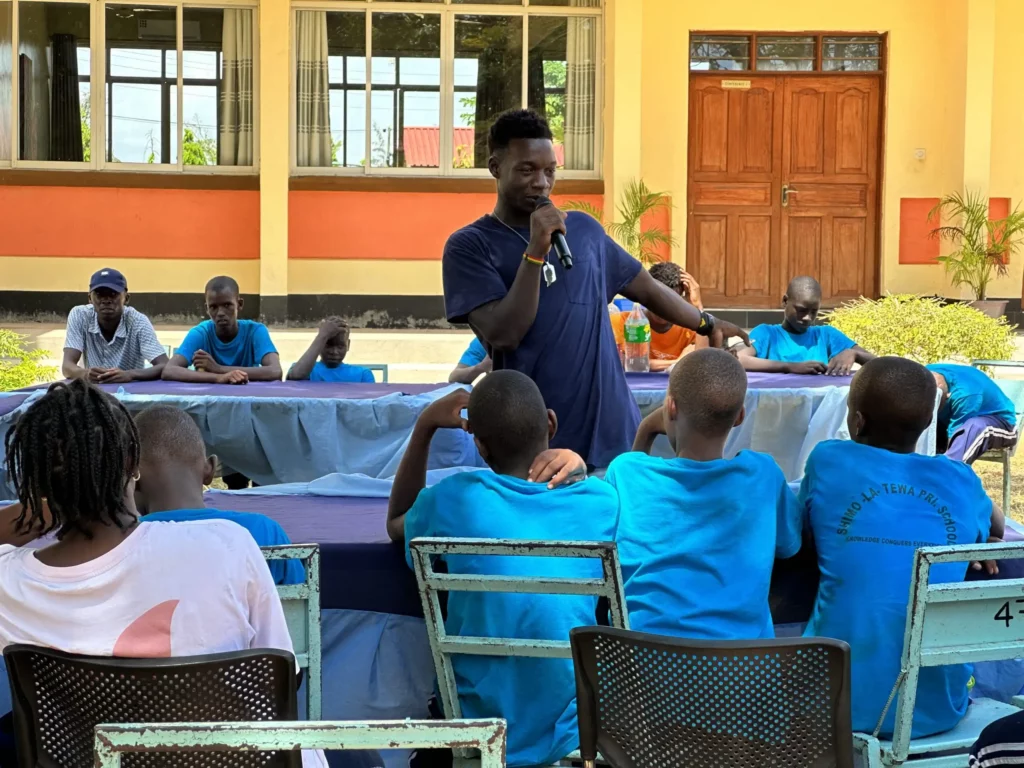
For these children, the colony is the best place they have visited in their life, because there is food every day, missionaries come to them, become friends with them and pray. For many of these children, the colony was a blessing.
Do you visit a center for disabled girls, how do you help this category of needy people?
This center was founded by the Girl Scouts Association of Kenya. The idea is for the institution to be self-sustaining. There are no more investments there, but the girls have remained. We got to know them because they were not far from the colony when they had no food. Our goal is soul care and evangelization. At the center, they are taught crafts, but there is no psychologist there, no one who could talk to them outside of the sewing machine.
The problems of rape and other points related to their insecurity have already begun to be revealed for us. They have problems with elementary hygiene, nothing to eat, simple things, but for girls it is a whole world that they have to be taught. Our internship graduate teaches them a basket weaving class.
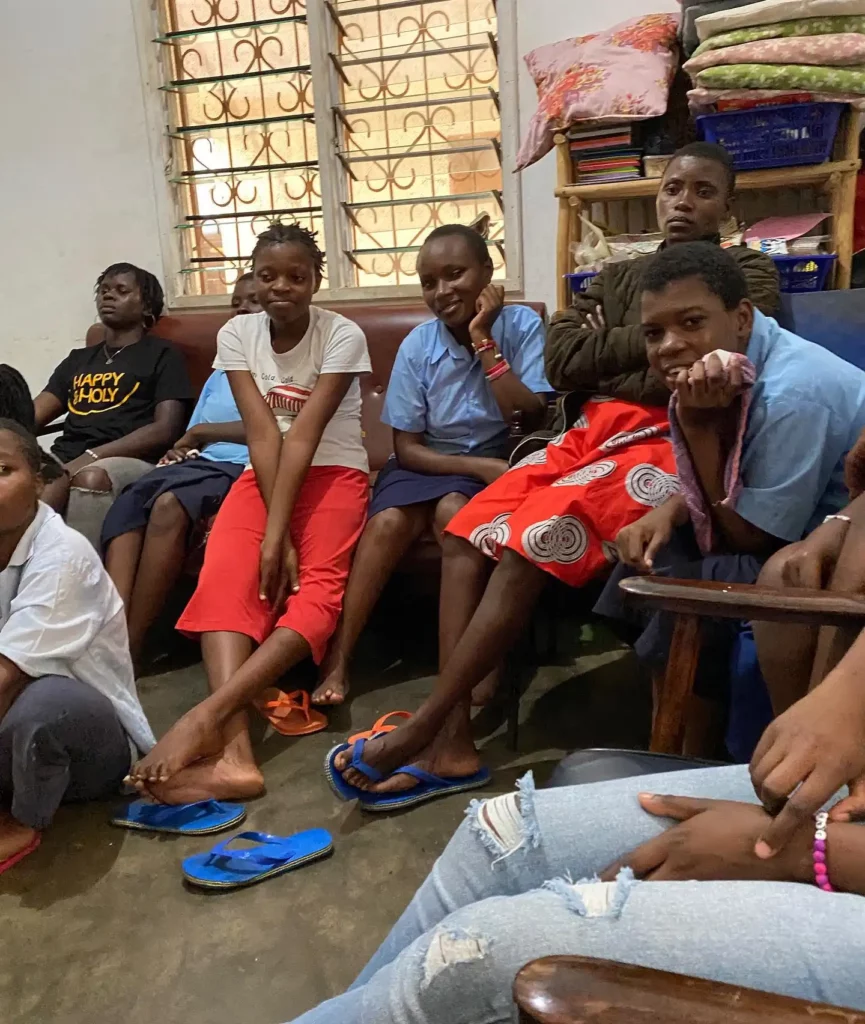
The heads of the center noted that the girls had undergone enormous changes after our visits. They don’t fight anymore, they don’t curse, they start to look after themselves better, laugh more. They ask us not to leave them. Last year was difficult, we thought about cutting some projects, but we could not leave the center. These girls will probably not become members of our community, but we see the fruit.
Serving young men in the colony and the center for disabled girls are places of love for us. We see how much they need it, they are very grateful to us for our care.
What is the best way to reach out to Kenyans?
Through a long-term relationship. Probably 80 percent of the population knows about Christ. Moreover, the country positions itself as a Christian country. But this is rather nominal Christianity. There are a lot of lies in the country. Therefore, there is an urgent need – not just preaching the Gospel, but to “teach”, as Jesus said. And it can take years.
To love people, even if no fruit is visible through the years. But this can probably be attributed to any person regardless of nationality.
How to become a Zamu ministry partner?
If it is a financial partner, signing up for a monthly donation through “Donorbox” is the most convenient way. The second point is prayer, you can subscribe to the monthly newsletter. You can also come to us: there is a need for people who could share their profession with young people: photographers, IT, others, so that young people can use these skills for the rest of their lives.
Your advice to young missionaries.
If we talk about a cross-cultural mission, then take your time, because understanding a culture and becoming a part of it always takes time.
Stock up on patience and qualifications. I have noticed that often people want to go on a mission but have no practical skills or experience to share. They want to save thousands, but they have no training.
Be ready for the fact that the mission is not always the conversion of thousands, sometimes it is difficult routine work, dying to oneself without seeing quick results. To be emotionally ready for this, because, as Paul said, one sows, another waters, but only the Lord makes everything grow.
The results are not from us. We must be faithful. Start with this understanding, so as not to be disappointed later.
Thank you for the conversation.
The interview was prepared by the CITA press center.
